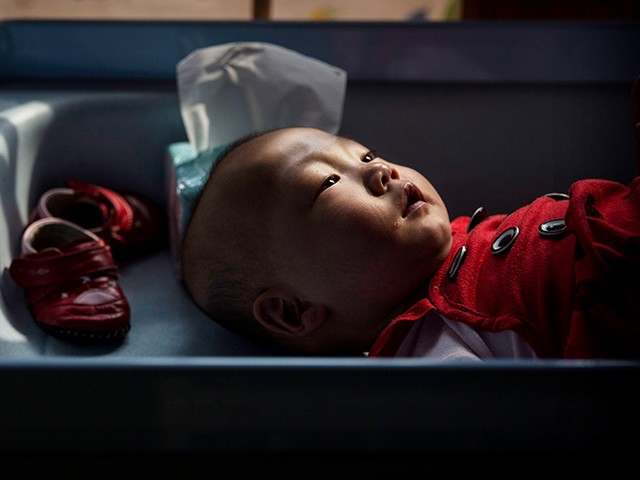China’s current craze for apparel that makes young women look more appealing – and fertile – to potential suitors is taking a ribbing on social media from feminists, who think “good for marriage” fashion is just another transparent effort by the regime to arrest population decline.
Reuters noted on Thursday that “good for marriage” fashion became popular on China’s tightly controlled social media with suspicious speed, pushed hard by a gaggle of powerful social media influences.
The fashion trend is largely based on a 2021 Chinese movie called Brilliant Girls, which is about a woman who is desperate to reel in a husband. Her recipe for hypnotizing men apparently involved wearing a lot of pastel-colored outfits that made her look like both a fun date and a responsible potential mother.
Chinese feminists were not amused by their government’s latest effort to arouse their maternal instincts:
“I’m desperately working towards the “difficult to marry style”. I love exercising, shopping and I’m a super feminist who loves to argue,” one user posted on China’s Weibo social media platform.
Another Weibo user posted: “I am so happy alone. Super happy! Be a hard-to-marry girl, sensible, self-interested, loves herself.”
Angel, a user on Little Red Book, a Chinese social media platform, asserted that she is putting forth effort to be “difficult to marry.”
“In the end the most important thing is to be rich and financially independent,” Angel said.
The irony of someone rhapsodizing about independence on a website named after murderous dictator Mao Zedong’s Little Red Book appears to have been lost on everyone involved.
The Chinese government has been laboring mightily to convince young people to have more children, without much success. As some critics of “good for marriage” fashion pointed out, the economic incentives against getting married young are enormous, including the sacrifice of education and budding careers to become young mothers.
Beijing’s efforts to goose fertility rates upward ranged from increased child-rearing subsidies to legitimizing childbirth by single women to shaming childless couples as “pedophobes.” None of these approaches have worked very well, which clearly came as a shock to Communist rulers who assumed they could simply order their subjects to have more babies.
It will come as small comfort to the Chinese Communist Party that almost every other industrialized nation is experiencing various levels of demographic crisis, with particularly acute examples spread across Asia, and none of them has come up with a good answer, either.
China’s problems are exacerbated by factors such as the grotesque social and demographic deformations from its decades-long One Child Policy of limited family size enforced through mandatory abortions. The current crisis in China’s housing market is making couples more nervous about the prospect of suddenly needing an extra bedroom.
Even nations without those encumbrances are having a difficult time convincing young women to take on the personal and financial challenges of childbirth, and healthy population growth is impossible without a sizable number of women choosing to become mothers at a fairly young age.
A declining population means not enough young workers to drive China’s economy moving forward and not enough income to cover the cost of retirement and medical benefits for a rapidly aging population. This will cause problems far beyond China’s borders. For example, China is a huge importer of certain food items, and demand for those products will inevitably fall as the population declines, causing major economic problems for China’s suppliers.




COMMENTS
Please let us know if you're having issues with commenting.